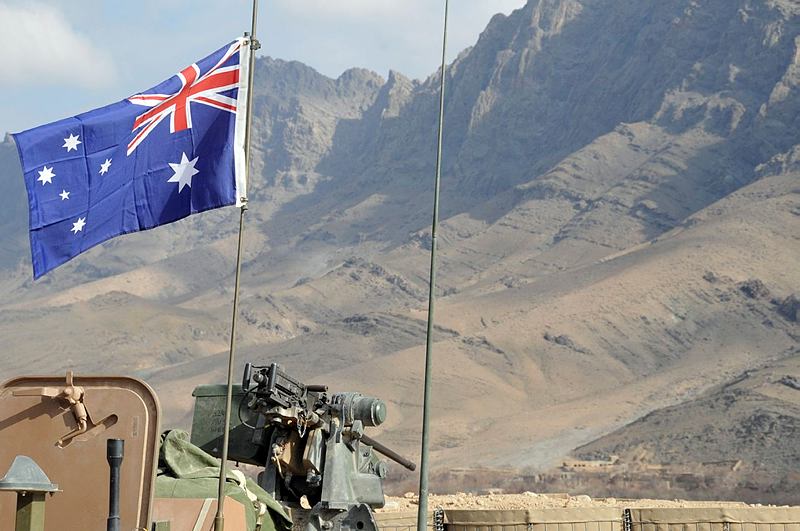The Middle East and our policy travails
It’s been a little over a year since the ISIS chapter of Australia’s long war in the Middle East commenced. As I’ve said on a number of occasions over the last year, starting here and more recently here, the obsessive focus by the US on the tactical fight against ISIS without a pragmatic overarching Middle East political strategy was destined to lead to failure. Professor Hew Strachan observed in his book The Direction of War that ‘the application of the title “the long war” has made the struggle against terrorism impractical, unfocussed, and therefore astrategic (if such an epithet exists)’—and so it has!
The unipolar moment in the affairs of nations has passed. The US no longer has the political or economic will to play the role as the world’s knight in shining armour. The Middle East of 2015 looks more like the Middle East of the middle decades of the 20th century than some ‘new’ or unique phenomena. Yes ISIS is new, but the underlying causes and the potential political solution may not be. What is novel is the need to rediscover the norms of international behaviour, which have led to de-escalation and negotiated solutions to the Arab-Israeli wars of the past.
It’s time while the refugee disasters capture the world’s attention to pause and re-think our collective approach to Syria, ISIS and the immediate Middle East crisis. We really need to put aside the Twitter/Instagram approach to strategy and leverage the processes that have been relearnt through the P5+1 approach to Iran. There will not be immediate gratification, but progress toward some form of enduring peace which meets the humanitarian need and starts building political norms will be possible. Political norms that enable unique regional solutions to be found, that ensure respect for state boundaries, and support the development of internal governance, would be a good start.
A pragmatic solution would be made up of several elements. To start there’s a critical need to de-escalate the contributing tensions in the region and reinforce the isolation of ISIS. To do so, Assad must be an issue for tomorrow, Iran and the Gulf States need to step back from their proxy conflicts and enable confidence building measures to be developed with urgency, Turkey can’t be allowed to continue to inflame the Kurdish issue.
The norms of post-WWII international relations for all their shortcomings need to be re-discovered urgently. It needs to be remembered that Russia (as the Soviet Union) has, opposite the US, played a stabilising role in the post-World War II Middle East. Washington and Brussels need to see Moscow, for all its current challenges, as a means to an end in the Middle East.
The UN Security Council, while far from perfect, has been a theatre within which solutions can be found—we need the P5 to rediscover how to make it work! In part, the P5+1 plus Iran approach through the Geneva II forum may offer an opportunity. As part of this UN effort, a security force under a UN flag needs to be explored—when and how to deploy the force will be a challenge but the principle of a stabilisation force must be at the forefront of international discussion. This, coupled with internationally enforced no-fly zones and safe areas for non-combatants, will reinforce the priority of de-escalation and containment of ISIS. It also takes the pressure off the neighbouring countries that most need it: Lebanon, Jordan, Israel and Turkey.
The refugee camps in Lebanon, Turkey and Jordan require adequate funding not just on humanitarian grounds but as part of an overall political strategy in the Middle East. First, because the refugee flow into Europe can only be slowed at its source. But second, of equal importance is that the Syrian refugee camps, if managed well, will be a first step toward undermining the ISIS threat from within. The Palestinian refugee camps are a stark reminder of the international community’s failures in the past.
Finally, the future of Syrian governance is non-trivial. Syria like Iraq is probably beyond repair—but Assad’s future is an issue for another day; a political vacuum in Syria can’t be allowed to develop. Syria and Iraq’s futures as nation states must be on the solution table. Equally the issue of the Kurds must be placed explicitly on the table. It will be for the Kurds to determine their future, but for all their weaknesses, they have earned the right to decide.
In this process, Australia has a role. Australia needs to find its voice—we have a long relationship with the Middle East dating back to WWI. We have well-developed political, diplomatic, security, economic and social links which provide us with access and influence. Equally, the phoney war that is the pre-presidential election period in the US means that the current administration is unlikely to make any brave political moves in the Middle East. However, it’s the time for a bipartisan Australia to push hard on all its access points in Washington.
This is the time and place for well-executed middle power diplomacy on the part of Australia. It must start in the next month in New York at the UN General Assembly. Both sides of Australian politics should rightly stand condemned if they cannot put childish partisan politics aside to ensure a unified Australian diplomatic voice is found. An assertive voice that’s heard clearly, publically and privately in Washington, Europe and the Middle East.
